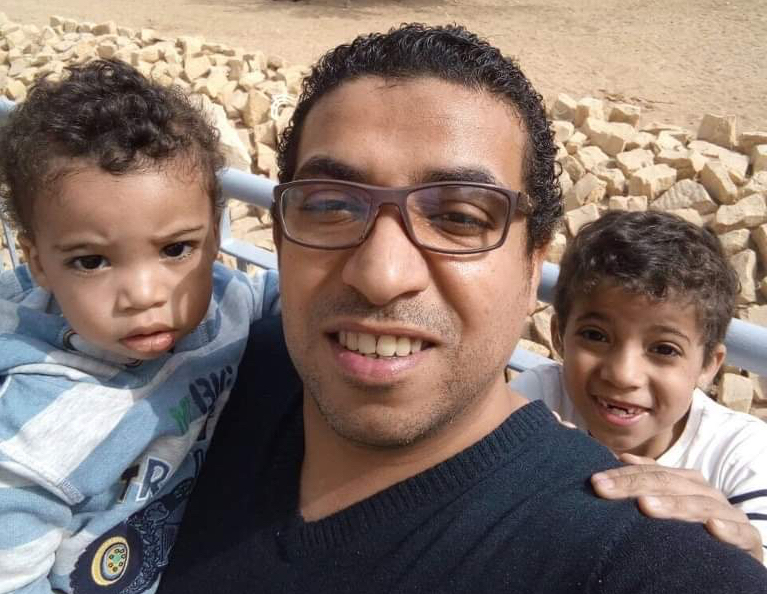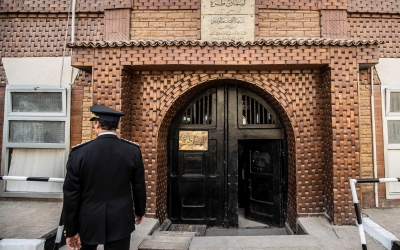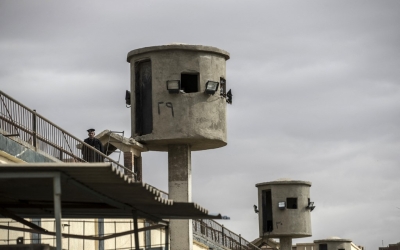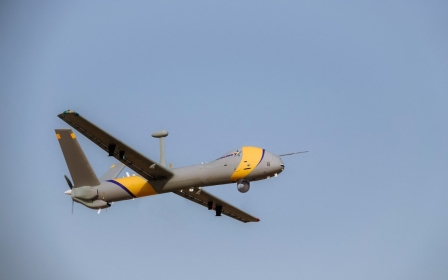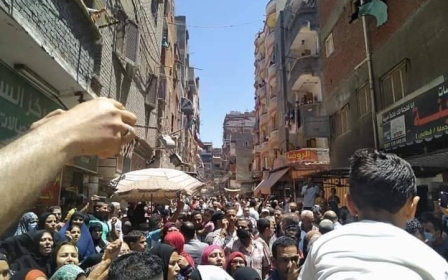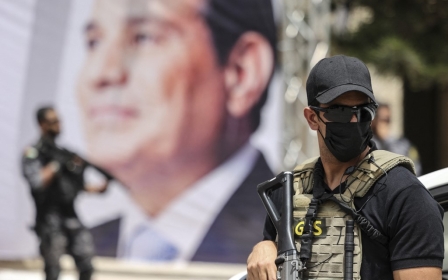Canada urged against deporting human rights activist to Egypt
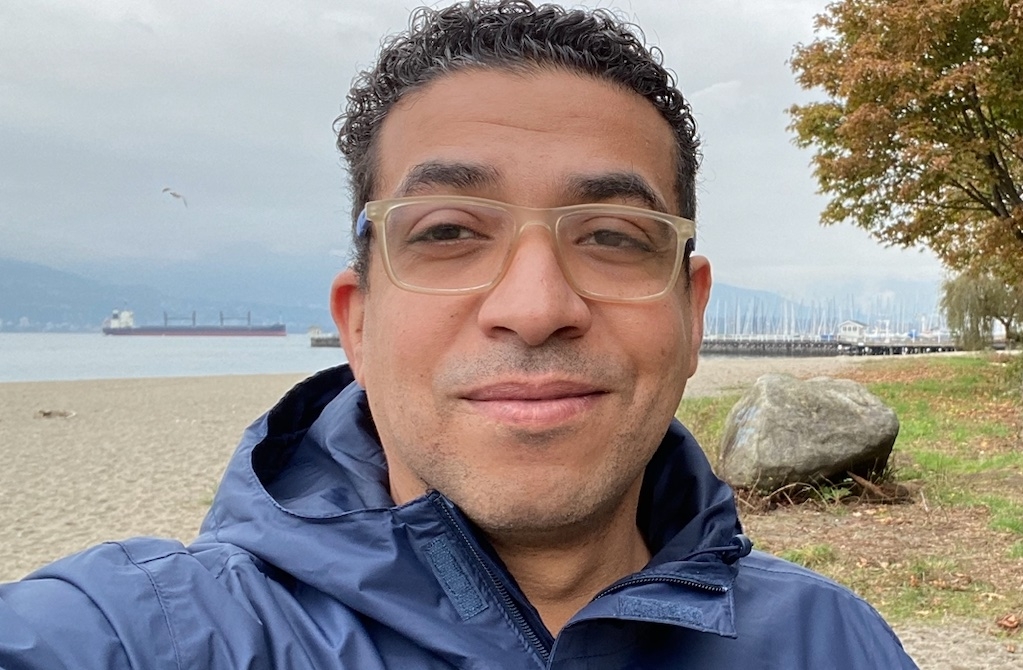
Canadian lawmakers and rights groups are calling on authorities to halt the deportation of an Egyptian human rights activist, and carefully evaluate the risks he would face if he was returned to Egypt.
Abdelrahman Elmady arrived in Canada as a refugee claimant in late 2017, alleging he was fleeing persecution by Egypt's military government over his participation in mass protests against former strongman Hosni Mubarak and his membership in the Muslim Brotherhood's Freedom and Justice Party (FJP).
Following Mubarak's ousting in 2011 during the Arab Spring, the country held free elections in 2012, which saw the FJP capture the popular vote.
'The Canadian government has the obligation not to send anyone to a place where there is a risk of torture'
- Justin Mohammed, Amnesty
The victory was short-lived, and in 2013, a military coup led by Abdel Fattah el-Sisi overthrew the government of President Mohamed Morsi and Cairo launched a crackdown on Muslim Brotherhood supporters, killing hundreds and arresting thousands, including Elmady's friends.
The activist told Middle East Eye that he proceeded to make the journey to Canada in 2017 after working in Saudi Arabia for a few years.
Since then, the 38-year-old has been fighting legal measures to have him deported in federal court, and accused Canadian authorities of using his political affiliations against him.
"I'm innocent and they know I'm innocent," Elmady told MEE.
"For three years now, I've been working three jobs to support my wife and children and I've been paying my taxes. I have one question for the Canadian government: How will you ever compensate me for the three years that I've lost from my two sons and my wife and my future. How will you ever give that back to me?"
'Very common and very unfair'
Elmady told MEE that when he was detained upon arrival at Vancouver airport, border agents confiscated his laptop and printed out emails between him and his lawyer without his consent.
After three days of interrogation, he was jailed for two months, and then upon release given the status of "inadmissibility to remain in Canada due to security concerns".
The activist suggested that one of the reasons he may have been deemed a security concern was over his membership in the FJP.
The Canadian government does not list the Muslim Brotherhood or the FJP as terrorist entities, and many members of the groups' members have previously been able to apply for asylum in western countries.
During the lengthy waiting period in both his appeal cases, one for his "inadmissibility" and the other over his proposed "deportation", Canadian officials are reported to have contacted Cairo over Elmady's case.
According to CTV News, a transcript of Elmady's detention-review hearing on 18 October 2017 showed that the counsel for the public safety minister said the Canada Border Services Agency (CBSA) was seeking copies of a police summons issued against Elmady in Egypt.
One of Elmady's lawyers, Naseem Mithoowani, told CTV News that Canadian authorities would not normally communicate with a government that is allegedly persecuting someone.
The CBSA told MEE it would be inappropriate to comment on a specific case when there is ongoing litigation, adding that the removal of an individual from Canada follows a series of processes and recourse mechanisms that afford foreign nationals due process.
"It is only after such processes have been exhausted that the CBSA can remove a person from Canada," the agency said.
It added that its officers do not obtain or use documents clearly labelled "as being subject to solicitor-client privilege".
Barbara Jackman, an immigration and refugee lawyer, told MEE that the decision to deport Elmady shows that Canada's inadmissibility rules are sometimes too broad.
The CBSA has previously deemed inadmissible "anybody who has any material kind of association with an organisation that has engaged in violence", regardless of whether the group is listed as a terrorist group, she said.
"The problem is that in order to find the person inadmissible, they don't have to have done anything. It's very common and very unfair."
CBSA oversight
Several rights groups have been urging Canada to suspend Elmady's deportation and have called on Ottawa to thoroughly review whether he would face persecution and torture if returned to Egypt.
"The idea that Canada could deport somebody back to a country where they're very likely to face torture or worse is a grave concern," Mustafa Farooq, CEO of the National Council of Canadian Muslims, told MEE.
Since coming to power, Sisi has ruled with an iron fist, criminalising virtually all forms of political opposition and jailing dissidents by the thousands - including US citizens and their family members.
An estimated 60,000 political prisoners are being held in Egyptian jails, according to rights groups.
Sarah Leah Whitson, executive director at Democracy for the Arab World Now (DAWN), previously told MEE that "the Sisi government will not be satisfied until it arrests each of the tens of millions of Egyptians who voted for [the Brotherhood's] Freedom and Justice Party".
Justin Mohammed, a human rights and policy campaigner at Amnesty International Canada, told MEE that the Canadian government "has the obligation not to send anyone to a place where there is a risk of torture," he said.
"Given that Abdelrahman [Elmady] alleges that he will be jailed, tortured, or even killed in Egypt, it is incumbent on the Canadian government to evaluate those risks."
Don Davies, the member of parliament representing the district where Elmady resides, also sent a letter in April to Canada's minister of immigration, calling for a stay in his proceedings.
"Abdelrahman Elmady is a human rights and democracy activist facing deportation to Egypt where he and his family face certain persecution," Davies said at the time.
Elmady's case has also increased calls for civilian oversight of the border agency, which is a move rights and immigration advocacy groups have been pushing for years to achieve.
"It is disappointing that the CBSA continues to operate without oversight and accountability, particularly given the significant impact that CBSA officials' actions can have on people’s lives," Mohammed said.
"Despite this, regretfully the government has not prioritised the adoption and implementation of the laws needed to bring about oversight and accountability."
Middle East Eye propose une couverture et une analyse indépendantes et incomparables du Moyen-Orient, de l’Afrique du Nord et d’autres régions du monde. Pour en savoir plus sur la reprise de ce contenu et les frais qui s’appliquent, veuillez remplir ce formulaire [en anglais]. Pour en savoir plus sur MEE, cliquez ici [en anglais].


